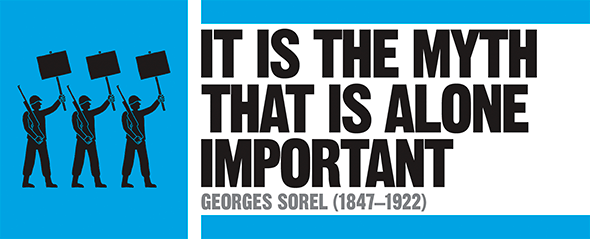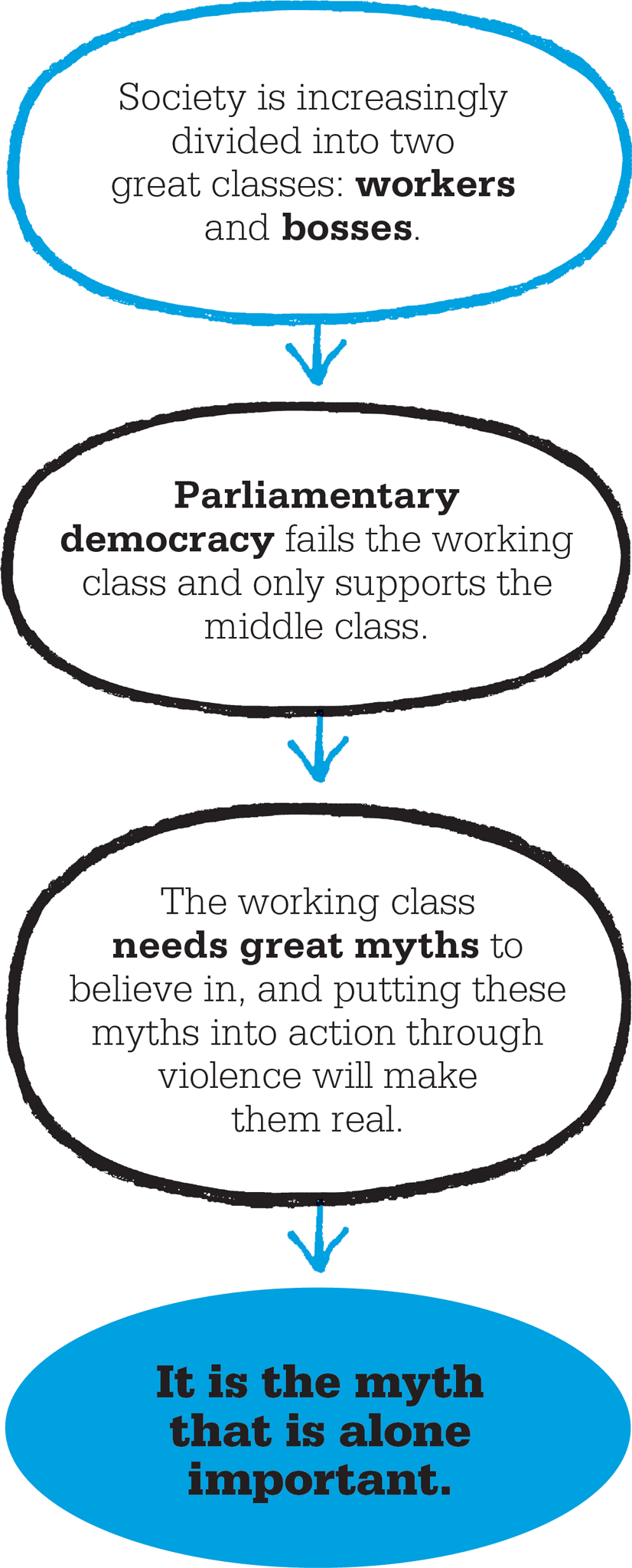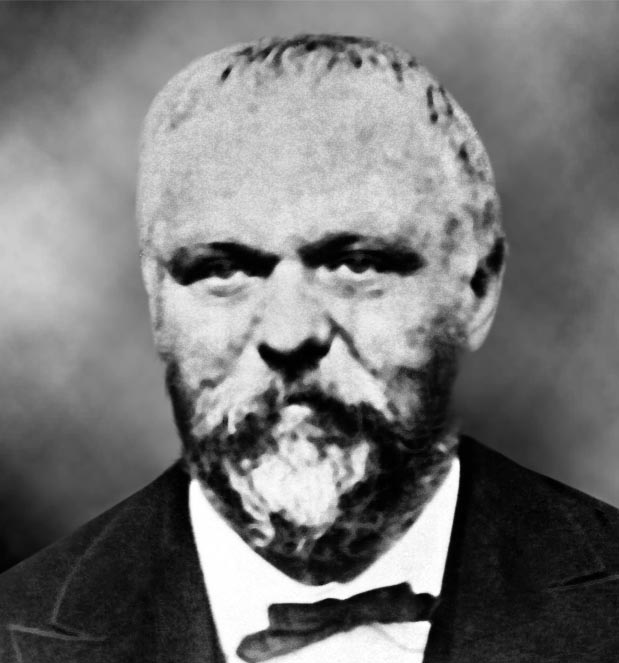
IN CONTEXT
Syndicalism
The heroic myth
1848 Karl Marx and Friedrich Engels publish the Communist Manifesto, as revolutions sweep across Europe.
1864 The International Workingmen’s Association, the “First International,” is founded in London, uniting socialists and anarchists.
1872 A split between anarchists and socialists leads to the collapse of the First International.
1911 Admirers of Sorel form the Cercle Proudhon group to promote anti-democratic ideas.
1919 Novelist Enrico Corradini claims Italy is a “proletarian nation,” seeking to unite Italian nationalism with syndicalism.
At the turn of the 20th century, Europe had well-developed capitalist societies. Alongside the incredible concentrations of industry and wealth that capitalism had created, a great new social force had emerged—the industrial working class. Political parties laying claim to the votes of the workers had formed, and these became stable organizations with increasing electoral significance. However, as the parties became entangled in parliamentary politics, seeking to eke out minor concessions from the system, they appeared to many radicals to be merely another prop for existing society.

Georges Sorel sought to challenge this bureaucratization in what became a unique body of work, synthesizing influences from Karl Marx, Friedrich Nietzsche, and French philosopher Henri Bergson. In his major collection of essays, Reflections on Violence, he rejects objective science as simply a system of “fictions,” constructed to impose order on a reality that was inherently chaotic and irrational. He believed that to treat human society, the most chaotic of all parts of that reality, as if it were something to be rationally understood, was an insult to the power of human imagination and creativity.
"It is to violence that Socialism owes those high ethical values by means of which it brings salvation to the modern world."
Georges Sorel
The power of myth
In place of objective science and theories about society, Sorel proposes that great myths could be used to change reality. Indeed, by believing in heroic myths about themselves and about the new world to come, the masses could overthrow existing society. Parliamentary democracy had failed, since it merely provided the means for the “mediocre” new middle classes to rule over the rest of society—including those socialists now committed to parliamentary politics. Rationality and order had been substituted for freedom and action. Orthodox Marxism, too, contained the seeds of middle-class rule, in that it attempted to offer a “scientific” understanding of society in which economics determines history.
To break the hold of bourgeois rationality, a myth has to be both believed and put into action. Sorel sees violence as the means through which myths can become real. He details examples of such myths and movements—from the Christian militants of the early Church, through the French Revolution, to the revolutionary syndicalists, or trade unionists, of his own day. Syndicalism was the most militant wing of the trade union movement, rejecting political maneuvering as a corruption of workers’ interests. The general strike—a mass stoppage of all work—was the pinnacle of syndicalist strategy, and Sorel sees it as the modern myth that will found a new society. “Heroic violence” is to be welcomed as the ethical and necessary route to establishing the new world.
Sorel’s work is ambiguous. He rejects political classifications, and his thought does not sit easily on either the political left or right, though it has been used by both.

The miners’ strikes in the UK during the 1980s were an example of mass protests that came to be imbued with a heroic power, much in the vein of Sorel’s radical thinking.
GEORGES SOREL

Born in Cherbourg, France, and trained as an engineer, Georges Sorel retired in his 50s to study social problems. Self-taught as a social theorist, he initially identified with the “revisionist” wing of Marxism associated with Eduard Bernstein, before seeking a more radical challenge to parliamentary politics. His essays won a growing readership across the French radical left. At first, he supported revolutionary syndicalism and the foundation of the French union federation (CGT), opposed to parliamentary politics. But he became disillusioned, and turned to the far-right movement Action Francaise, believing an alliance of aristocrats and workers could overturn middle-class French society. He later denounced World War I, and supported the Bolsheviks in Russia. By the end of his life, he was ambivalent about both Bolshevism and fascism.
Key works
1908 Reflections on Violence
1908 The Illusions of Progress
1919 Matériaux d’une Thérie du Prolétariat
See also: Karl Marx • Friedrich Nietzsche • Eduard Bernstein • Vladimir Lenin • Rosa Luxemberg
